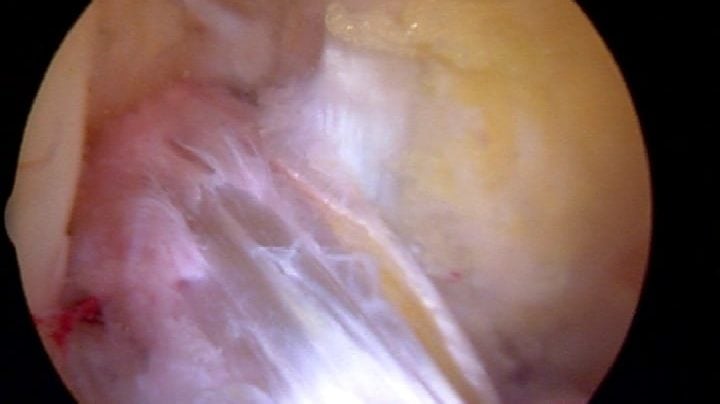
Having ACL surgery is a big commitment. It is a painful procedure with a long-anticipated recovery. As your surgeons, we know all of you have one goal in mind, returning to sports after your ACL reconstruction. The research around the return to sports after knee surgery has been studied aggressively for decades. We have great statistics and great rehabilitation programs to guide you. Many of you will try and rush your return to sports too soon. If you attempt to return to sports too soon after ACL surgery then you run the risk of tearing or re-injuring your new ACL.
Below are 5 expert Sports Medicine opinions about when an athlete can expect to return to sports after having an ACL ligament reconstruction on their knee.
A successful return to sports after ACL surgery is your number one goal. There are many variables that go into determining when you should try to return to sports after ACL surgery. The risks of returning to the playing field too early after ACL surgery include suffering a re-tear of your new ACL. A successful return to sports after ACL surgery requires a team approach. It involves you, your surgeon, your athletic trainer and your physical therapist. We have very strict criteria for when an athlete can return to sports after ACL surgery. If you attempt to return to sports too soon you have a significant risk of tearing your new ACL.
Related reading …
- Physical Therapy and ACL Injuries
- Can I return to sports after ACL surgery?
- Risks of reinjury after ACL surgery
The statistics can be alarming. You might have a 45% risk of tearing your new ACL if you have not rehabilitated your knee properly. You can drive that risk down to 18-20% with the proper training. Unfortunately, once you tear your ACL you are always at risk of tearing the new ACL.
The first goal of your physical therapy after ACL surgery early on is to get back your motion and strength. The later stages of the recovery process involve improving your balance, agility, jumping and landing skills. Doing so will decrease the risk of re-injuring your knee and re-tearing your ACL. Your recovery from an ACL reconstruction involves not only the physical aspects of your recovery but perhaps equally as important, the emotional and psychological components. We will get into this in more detail in a later series with many experts who specialize in rehabilitation of ACL injuries.

What criteria do our experts use to determine when you might be able to return to sports after an ACL reconstruction? Once again we have asked our panel of ACL experts to offer their insights.
How Do You Manage Your Athletes After ACL Surgery … and
When Do You Let Your Athletes Return To Sports After ACL Surgery?
S.S: My ACL surgery post-op protocol involves brief ( about 7 days ) immobilization of the knee in full extension and full weight bearing as tolerated. In some animal studies done at HSS, a short period of post-op immobilization leads to better quality ACL graft biologic tendon to bone attachment. In addition, this has helped me encourage patients to achieve early post-op full extension of the knee, which is very important. After about 7 days, I remove the brace and start physical therapy to reduce swelling, get full range of motion and start isometric strengthening progressing to closed chain lower extremity strengthening. I modify this program for patients with a meniscus repair or a multi-ligament reconstruction. I will allow patients to start a running program at 3 months if they can pass a series of four, simple to administer, functional tests. These tests were developed by a joint group of orthopedic surgeons and physical therapists and were published in a special issue of the journal Sports Health. During this time they continue to work on strength and neuromuscular control.
D.G : I work very aggressively to have the patient regain full knee extension in the first few days or at least a week or two after surgery. I also have them work with the physical therapist to regain quadriceps strength as quickly as possible. I tend to allow full weight-bearing unless I perform a repair of a bucket-handle meniscus tear. Otherwise, I use a fairly standard protocol, usually restricting jogging for 10 to 12 weeks after surgery and progressing to sport-specific activities in the coming weeks.
D.O : Initially, start physical therapy within a week. Unless I need to perform a microfracture, I typically do not use a continuous passive motion machine (CPM). Icing after surgery is a great pain reliever. The compression ice machines work great, but typically they are not covered by insurance. A frozen bag of peas can work pretty well in its place.
As you can see, determining when to return athletes to sports is a challenging issue. We want to limit your risk of re-injury as much as you do. Routine bracing after ACL surgery is not proven to be necessary. We also differ slightly when it comes to rehabilitation immediately following an ACL reconstruction. It turns out, as Dr Slattery pointed out, that waiting a while before starting PT might be of benefit by allowing your new ligament to start to heal. Stressing full extension as Dr Geier pointed out is critical.
Bottom line.. do not rush your return to sports. Get that leg and your mechanics and stability as close to normal as possible. It will be time well spent.
Our Experts:
D.G.: Dr David Geier : Twitter: @DrDavidGeier ; Website
J. B.: Dr Jeff Berg: Twitter: @DrJeffBerg ; Website
D.O.: Dr Derek Ochiai: Twitter: @DrDerekOchiai ; Website
S.S: Dr Scott Slattery: Twitter: @sportscaduceus ; Website:



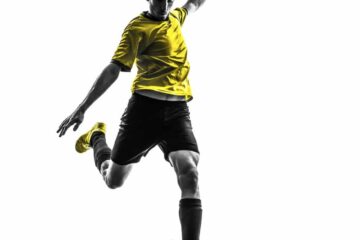
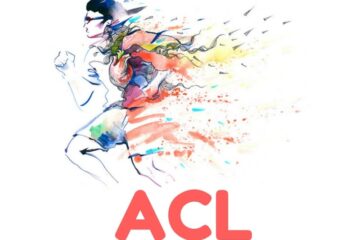
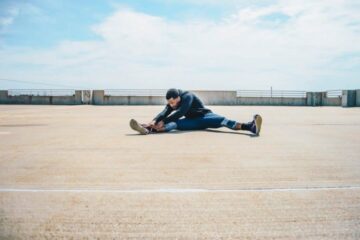




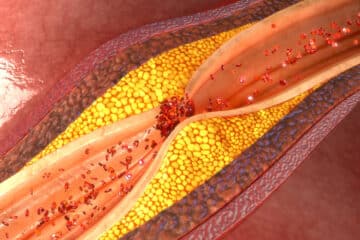

I tore my acl playing soccer September 2016 then later had surgery in October 2016. I had some problems getting my full range of motion back and it took me up until december 2016. Since PT has been such a pain i just now recently am getting back into jumping currently. Next week i have an appointment with my doctor to check if I am cleared to return to sports and since soccer starts next week, I really wanted to be able to play. Do you think i will be able to return?
I hope so :-) It depends on your agility testing that the doctor performs. We have many tests that we ask athletes to complete before we allow them to return to play.
Hi Doctor! I am a Senior in high school and I have a very important question. I tore my ACL last year in the last football game of the season and had ACL reconstructive surgery using my hamstring graft. Basketball is my favorite sport and I am receiving college offers to play. I have started since I was a Freshman. I had to miss my junior year of basketball and was eventually cleared in August to play football again. In the third game this season I tore my reconstructed ACL. I tore my ACL and a slight tear in my lateral meniscus. My very important question is, Is it possible for me to play basketball and have surgery after basketball season? Or is there anyway I have surgery now and make it towards the end of the season? I know there is risk playing on a torn ACL but I just wanted to know if it was a possibility? It is my senior year and it is my last chance. Your thoughts? Thank You!
There is risk involved if playing on an ACL deficient knee. That being said, there are people who have finished an in-depth ACL rehab program and returned to sports without ACL surgery. The risks include cartilage damage and meniscal tears, both of which will significantly increase the risk of developing arthritis.
My 17 year old son tore his MCL and ACL during a football game. We have been told he needs an ACL reconstruction surgery. Is there much of a difference in outcome between a Minimally Invasive ACL Reconstructions vs the standard Arthroscopic ACL reconstruction surgery? Thank you! Your information on return to play was very helpful.
HI Kelly….
All ACL reconstructions are arthroscopic and by definition minimally invasive. The success of an ACL reconstruction with a 17 year old athlete will depend on :
1. Surgeon’s experience…. the surgeon needs to perform many, many ACL reconstructions per year.
2. Graft choice… a lot of scientific literature showing that allograft (cadaver) is not a good choice in this age group.
3. Proper pre-hab : Rehab before surgery improves response to rehab after surgery.
4. technique … a good surgeon will get the graft in its proper place far more often than an inexperienced surgeon.
5. Rehab and adherence to strict return to sports criteria …. it usually takes 8-12 months to be able to pass the tests.
the length of the incisions is meaningless and often a marketing/ selling point — but has nothing to do with the recovery or rate of return to sports.
Good Luck
my son tore his ACl and Meniscus October 5,2017 . He had acl surgery and took the test to resume play after 8 months of intense therapy He got a 97 on the test to return. His 1st day back to football he tore everything again with a basic run and cut move with no equipment or contact. should he give football up bc it will happen again? Whats happens if you tear it 3x? He was being recruited by D1 schools. He is going to be a junior this year. He is out until july 2019. Thanks for your advice Please reply
HI Matthew …
I am sorry to hear of your son’s reinjury. These can be devastating injuries.
Return to sports (RTS) after an ACL tear is a very complex and hotly debated topic. Many of us are going longer and longer now before letting athletes back on the field. But the pressure on us is intense. Coaches, parents and athletes are trying to push the recovery shorter. We may allow training to begin at 8-9 months, but often delay return until 1 year or more. We don’t really score the physical component of the RTS criteria, but we do score apps like the ACL-RSI which tell us if the athlete feels emotionally ready to return.
Mick Hughes ( https://twitter.com/mickwhughes ) out of Melbourne has a tremendous amount of information online about his criteria and RTS program. It might be worth looking into.
Mitigating risk with RTS include:
Graft choice .. NO allografts in kids, Patella Tendon likely best graft for football.
Strength
Conditioning
Heavy load training
agility work
Most of use the MOON protocol or the Melbourne Protocol for getting an athlete back. But they are not the only programs out there. There are also specific ACL rehab specialists such as Julie — https://twitter.com/julie_eib — who are very well respected in this area.
Unfortunately tearing the same ACL twice puts the knee at higher risk for yet another injury. D1 prospects tend to fade after a second ACL on the same side. There is also an argument to be made to stop playing football to minimize the risk of further injury and thus try to minimize the risks of developing severe arthritis at a young age. This is a complex and difficult topic. I am sorry that you and your son are going through this. Do your research before proceeding further … There’s a lot to learn out there.
Howard Luks
Hi- my 14 yr old son tore his acl in August playing foot ball, and had surgery in September. He’s just started back jogging and is slowly being introduced to agility drills. Surgery and rehab have been great up until now. The doctor has him in the don joy defiance brace for return to sport for 2 years. My son hates it! He said he’d rather not play sports than have to wear the brace. I’ve read on the comments above you do not recommend bracing, but do you put your pediatric patients in a brace for return to sport? Dr says it’s for confidence and propioceptive reasons, but at this point it’s making my son more agitated and he doesn’t want to do rehab. Thanks ahead for any insight you can shed.
it’s a very controversial topic. Most of us wait a very long time before letting a 14-year-old return to sports. We will hold back most for a year or more. Their risk of reinjury is simply too high. Anyway … I really can’t answer your question about the brace. There’s certainly no consensus opinion on using a brace…. and the research is not clear either.
Good luck to your son!